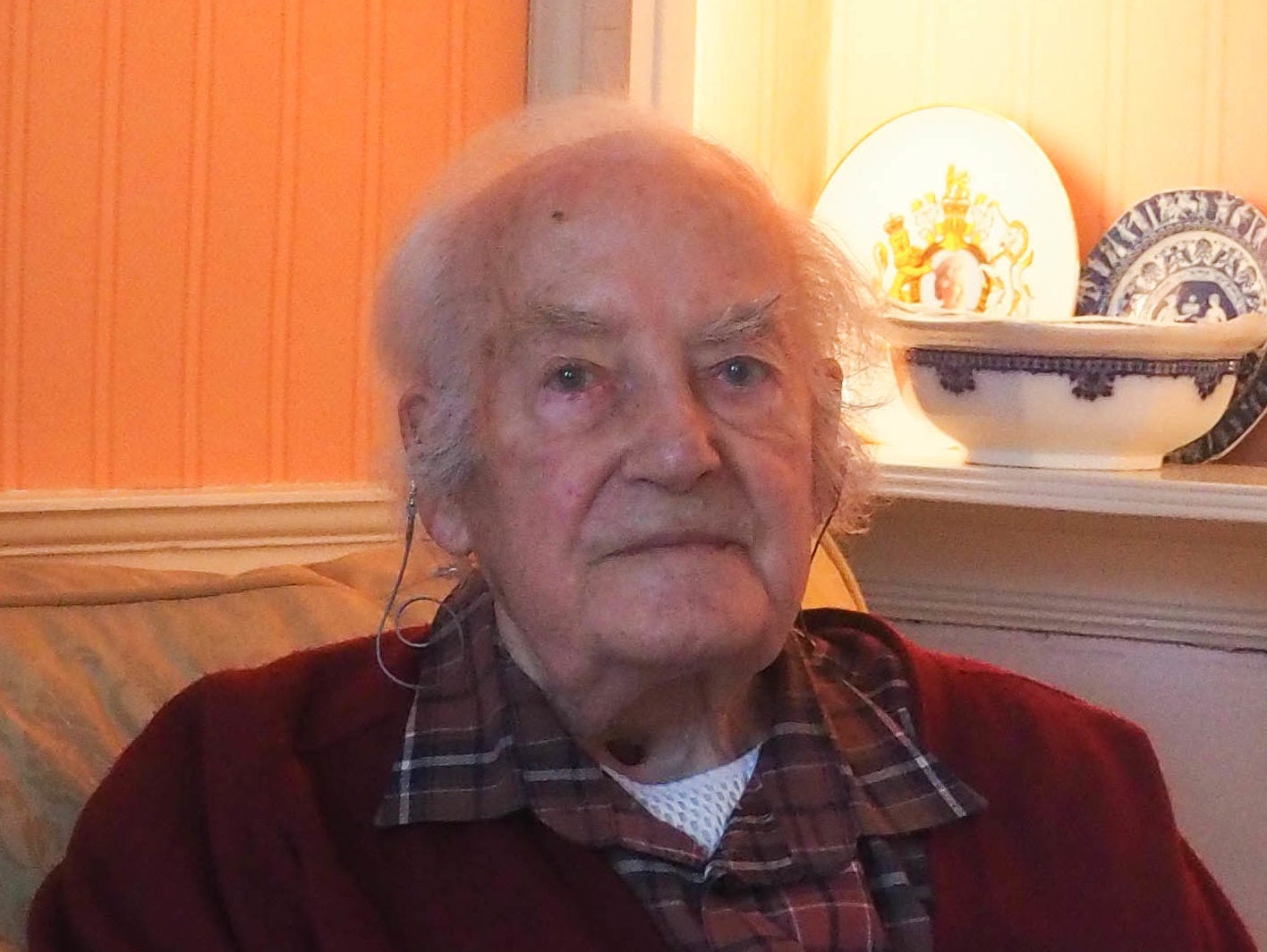
Sir Ray Tindle is perhaps the most influential media mogul you’ve never heard of and at the age of 91 he is certainly the oldest.
Throat cancer and a stroke have left their mark on the accomplished newspaper publisher – “I can’t speak and I can’t hear,” he says by way of an opening apology, “but I get by”.
Tindle has not, however, lost any of his enthusiasm and announces unprompted that “local journalism is a brand with a future”.
He says: “People think of journalism as a national business, but how many times has your neighbour been in a national newspaper? Yet there’s a good chance of him or his family being in a local paper.”
Tindle speaks slowly and wheezily with the help of a valve, which he operates by placing a finger over the circular hole in the middle of his throat. We communicate partly through speech and partly through scribbled notes passed back and forth.
His wife, Lady Beryl Tindle, sits by his side, and we’re helped by a carer, who has an almost psychic connection with the nonagenarian. A megaphone sits on the table next to us – a present bought as a joke by their son Owen, Lady Tindle tells me.
The idea of a local paper packed with photos of schoolchildren at the village fair is commonplace these days, but it’s a model that Tindle helped to pioneer.
He replaced publications spanning vast areas with hyper-local papers and ensured that each and every story was relevant to the reader.
“People want to know what their neighbours are doing in their own street,” he says. “I was told that people want to read the names of other people, see faces and read about places in their own area – names, faces, places. I tried to do that.”
Tindle’s beginnings in the industry are as unusual as they are impressive, and his character reflects this. He shows no signs of the tired cynicism of a weathered “hack”, nor does he exude the arrogance of a businessman hell-bent on building an empire of publications.
Instead, he radiates a genuine love for news or, more specifically, for local news.
After returning from the Second World War, Ray Tindle used his £300 demob money to purchase the Tooting and Balham Gazette, a small weekly paper.
“I suppose I thought I’d do a better job than the previous owners, and I thought it would be a laugh,” he says.
As it turns out, he was right on both counts.
Over the years, he purchased more and more struggling local papers and boosted both their circulation and profitability.
Now, with 220 titles and a knighthood to his name, Sir Ray Tindle has stepped down as chairman of Tindle Newspapers and passed responsibility on to son Owen.
It’s clear, though, that he wants to remain involved as much as possible.
Underlying Tindle’s success is an understanding not only of how local journalism works, but also more fundamentally of how people work.
His “names, faces, places” philosophy taps into a basic human desire to see your own name and picture (or those of your family and friends) in print.
He talks about the important relationship between schools and their local newspaper. I ask him if he thinks parents like seeing a photo of their child in the paper. “Of course,” he replies. “Some parents say they don’t, but they do really.”
Knowing how to harness these natural feelings of pride and narcissism, it appears, is one of the key ingredients of running a successful newspaper, and these discoveries came long before the notorious self-importance of the selfie generation.
So how does Tindle feel about the rise of social media? “Local journalism has been improved by these new media,” he writes laconically on a notepad.
In fact, his positivity is so great it seems somewhat implausible. “I’ve been quoted as saying that if I could have my way I’d have a new newspaper for every street. That’s not impossible.
“If you give a page to every street and change the position of the page each week, you could have a front page for every street. I think we’re nearly there – we’ve come close.”
At the height of a war of attrition against print journalism, it seems quixotic to suggest that local journalism faces anything but an existential crisis. Tindle’s papers have weathered the storm with relative ease, so perhaps there is something to be learned from his stoicism.
After almost an hour, Lady Tindle tells me it’s time to go, and leaves for the kitchen to turn on the oven for lunch.
Defiantly, Tindle leans in for a final impassioned defence of his trade: “Local journalism is very, very important,” he says, “but I’m biased.”
Picture: James Warrington
Email pged@pressgazette.co.uk to point out mistakes, provide story tips or send in a letter for publication on our "Letters Page" blog
